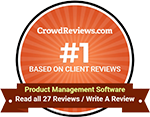WE ARE IN LOVE WITH CLIENT






Recently, we discovered how client loving working with us by their 5 star recommedation






Top





Magento and WordPress have grown to be the much-described topic of discussion, with regards to e-commerce development. Both of them are content management systems and comes rich in exemplary features that assist internet based shopping sites to create the high-end and functional e-store. Frequently retailers get confused in selecting the ideal platform for developing their web store. Using this article, I’ll provide insight on when you should pick WordPress or Magento specifically for your e-commerce platform.
- Plugins
WordPress is well-known for offering a lot of plugins. It also offers lots of e-commerce 3rd party plugins.In particular, it presents plugin which helps to integrate your e-store into WordPress theme – when you select to alter Magento to WordPress. But, sadly the third party plugins are less secure and reliable which isn’t a very important thing, especially if you are selling products. Magento doesn’t need plugins for embedding e-commerce platform features and functions within the site, as it was created mainly for offering e-commerce solutions. The fact is, it holds the capacity to add better functionality in relation to WordPress plugins. Moreover, it is safer than WordPress e-commerce plugins. It definitely built-in with options you to add dissever payment gateways, custom shipping methods, gift cards and a whole lot more. But, in an effort to get those features embedded into your WordPress e-shop you’ll have to employ plugins – which can impact your online shop security and can be time-consuming.
- Architecture
Given the fact, Magento is larger and is broken into a lot deeper parts in compared to WordPress, one might feel difficult to operate with Magento platform. However, engaging with WordPress is pretty easier than Magento and has an easier learning curve. But, building a web store with a lot of products in WordPress could be a headache, and thus, it’s better to choose the other alternative available.
- Multiple Stores
You can run multiple stores using a single dashboard in Magento. This is definitely the most powerful feature as to why Magento is preferred over Woo commerce by online business who’ve clear plans to expand their internet stores in future|soon. Since Magento possesses a native capability to run many stores simultaneously through one sophisticated back-end, no one can question the inherent flexibility of this platform. In comparison to WordPress, Magento has a much steeper learning curve that actually takes a longer time to understand the whole architecture and manage products and costs before launching the internet store. Time is the investment you have to pay due to the complexity of this ecommerce platform.
- Attributes
The advanced Magento eCommerce platform gives you the capacity to organize and filter products through attributes and stores. So, if you’re running a store that has a large number of products with hundreds of variations, this platform will easily be capable of handling everything with ease while giving your customers the most flexible way of shopping. If we talk about hosting requirements, the architectural complexity of the Magento ecommerce platform requires much more space in comparison to WordPress and much more server power also.
Magento, being solely an eCommerce platform is not a content publishing framework. So, if you want to associate a WordPress blog with your Magento website and manage the page content efficiently, you have to install some plugins and carve out a clear strategy for your business. However, with WordPress you have the ability to leverage the platform to create a content-rich website with minimum efforts. Simply because WordPress is an easy-to-use CMS that offers an inherent ability to create and publish blogs. In comparison to WordPress, Magento extensions are frequently quite costly. Often, the costs as high as hundreds of dollars are spent on customizing this website.